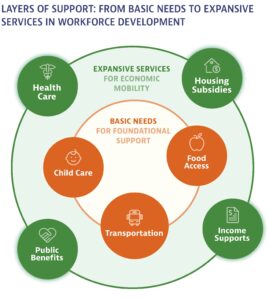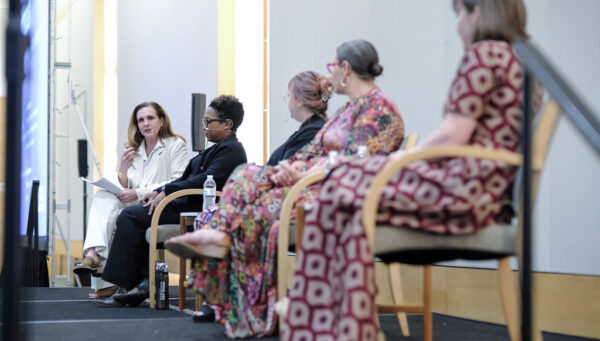Key Highlights
Challenges
Women are increasingly becoming the primary breadwinners for their families while also often serving as the main caregivers for family members — including children and elderly and/or disabled relatives.
Without comprehensive wraparound support services, women face barriers to participating fully in high-quality workforce development programs that offer opportunities for economic mobility.
Opportunities
Effective wraparound supports include income assistance during training, child care, food, transportation, housing subsidies, and health care. These can be provided by the workforce programs themselves or through referrals and coordination with existing social services and benefits programs.
Enabling the further participation of women in high-quality workforce development programs will effectively allow for upward mobility and opportunities for women to enter traditionally male-dominated fields.

Findings and Next Steps
- States should ensure public benefit programs, like unemployment insurance, enable workers to participate in effective training programs, benefiting the overall economy by boosting productivity, expanding the talent pool, and increasing labor force participation — especially among women, whose participation is currently declining.
- Policymakers can advocate for increased funding from both public and private sources to deliver wraparound support services and provide social worker support to training program participants.
- Engaging in active outreach to women is also important, as is proactive engagement with other marginalized groups, such as low-income or formerly incarcerated workers.


